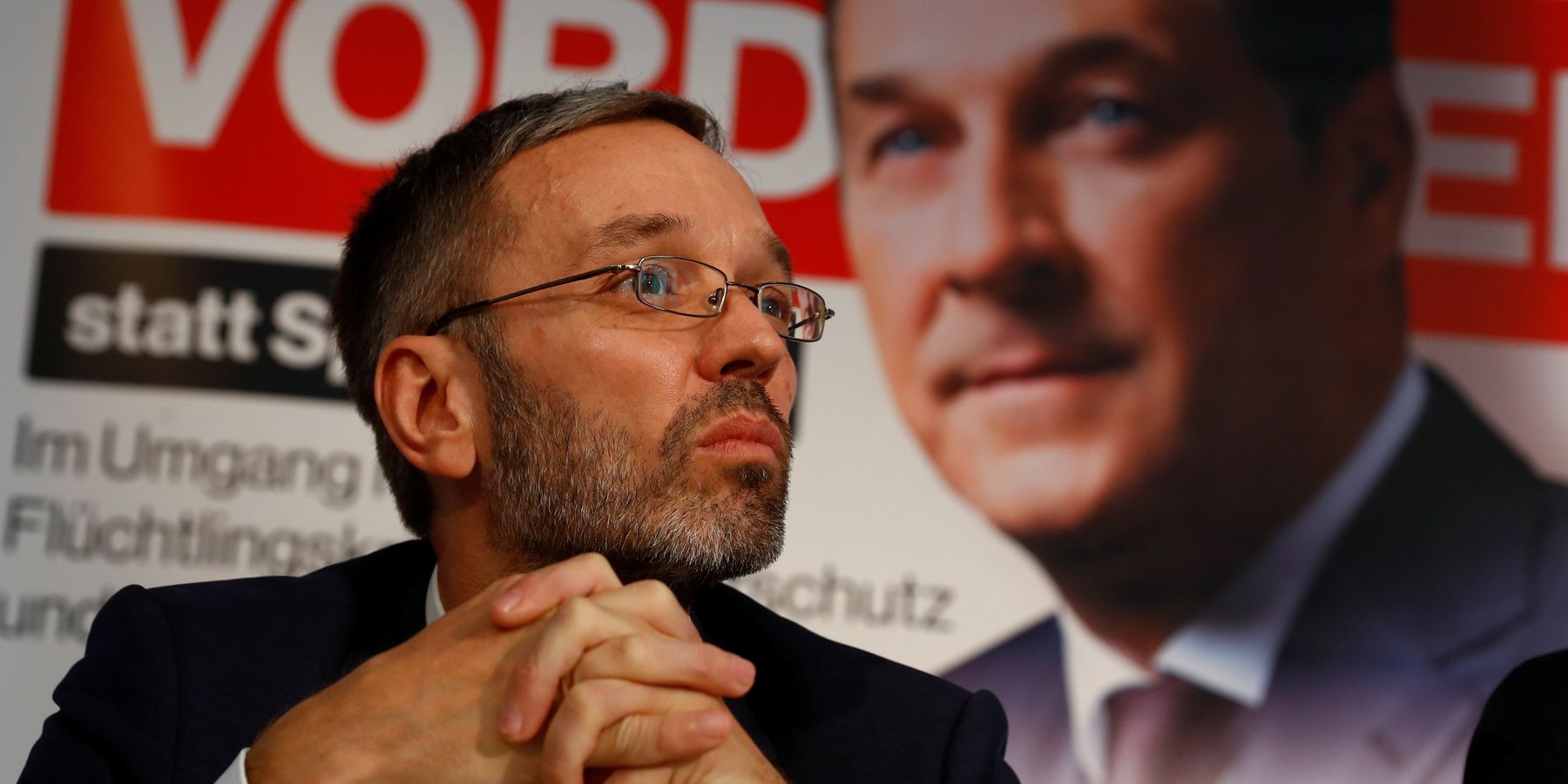The rise of the populist right in European elections continues as Herbert Kickl, the controversial leader of the populist-nationalist Freedom Party (FPÖ) appears on course to become Austria’s new chancellor after attempts to form a centrist coalition collapsed.
In a historic first for postwar Austria, the Freedom Party won the elections in September with 29%, followed closely by the center-right People’s Party (ÖVP). Chancellor Karl Nehammer resigned after having failed, after prolonged talks, to form a coalition with the social democrats and liberals. On January 6, President Van der Bellen asked Kickl to attempt to form a government. Talks immediately began with the interim leader of the People’s Party.
The Freedom Party campaigned on opposition to supporting Ukraine. The People’s Party and other major parties favor continued humanitarian and diplomatic support; neutral Austria has not supplied weapons but has backed EU sanctions against Russia. Because ÖVP and FPÖ agree on immigration and other domestic policy issues, they are considered likely to be able to form a governing coalition, having between them a comfortable majority of seats. However, it is unclear whether FPÖ’s distinctive positions on foreign and security policy will be tempered by partnership with ÖVP.
The novel prospect of a government headed by FPÖ has elicited alarm and anxiety among many Austrians, although the ÖVP and FPÖ have previously governed together, with FPÖ as the more junior partner. In this sense, Austria has long since abandoned the ‘firewall’ strategy followed by Germany, which forbids any coalition with the populist right. Kickl was Interior Minister under ÖVP Chancellor Sebastian Kurz until a major scandal in 2019 forced the Freedom Party out of power. Kickl has led the party’s recovery from near collapse in public support in the aftermath of the scandal.
The uneasy partnership of the two parties began in the early 2000s when under the controversial leadership of Jörg Haider. Haider had moved the Freedom Party sharply to the right, and the EU imposed diplomatic sanctions on Austria to protest his party’s involvement in government. Once a speechwriter for Haider, Kickl follows in Haider’s footsteps with passionate and polarizing positions on immigration.
Germany’s Doppelganger?
Germany is approaching elections on February 23 with a solid “firewall” against coalition with the populist right Alternative for Germany (AfD). Because of the obvious parallels, the Austrian case is closely followed in Germany. The Greens’ leader Robert Habeck said Austria’s example showed that centrist parties needed to learn to stick together, while the AfD’s leader Alice Weidel called for the CDU/CSU to join AfD to form a “bourgeois” majority.
As in Germany, Austria’s center-right supports Ukraine and sanctioning Russia, while the populist right in both countries firmly opposes continuing on that policy course. Both center-right and center-left in both countries call for sharp curbs on immigration, reflecting, to some extent, anxieties among the public about security. Kickl’s attacks on the mainstream press and media, his call for a ‘Fortress’ Austria to keep out migrants, and his aspiration to serve as ‘Volkskanzler’ (people’s chancellor) evoke comparisons to the AfD’s Bjorn Höcke, the party’s leader in the state of Thuringia.
AfD now polls at about 20%, second to the center-right CDU/CSU at about 30% but ahead of the social democrat SPD (16%) and the Greens (13%). If the trend of growing support for AfD continues, it will become more and more difficult to form stable governing majorities that exclude them. From the standpoint of the CDU/CSU, the cooperation in governing coalitions of the center-right ÖVP and FPÖ may serve as a cautionary tale because FPÖ has, at last, surpassed the ÖVP in popular support and is, therefore, less amenable to moderating its more controversial positions. On the other hand, some conservative members of the German center-right might eventually be tempted to form a coalition with AfD rather than being obliged to adopt the compromises needed to form a “grand coalition” with the center-left Social Democrats. Coalition with CDU/CSU is clearly the AfD’s principal avenue to power.
'Orban 2.0' a potential headache for Brussels — and Kyiv
Kickl is close to Hungary’s President Viktor Orban and calls him a role model. If Kickl becomes Chancellor, he is likely to join Orban in opposing the periodic renewal of EU sanctions on Russia. Kickl’s Freedom Party and Orban’s Fidesz in June founded the “Patriots for Europe” action in the European Parliament, where they press for enhancing the power of member states and curbing the power of the Commission.
Although Austria is not a heavyweight in Europe, the addition of one more EU member to the small camp of open opponents of continuing support for Ukraine will have consequences, especially as negotiations to end the war may soon begin. However, it is possible that ÖVP will be able to win concessions from Kickl on the Ukraine issue in return for joining the governing coalition.
- Right and left populists bringing down Euro elites in 2024 ›
- Austrian election could complicate EU Ukraine war policy ›
- Europe's center is crumbling as nationalism surges | Responsible Statecraft ›
















